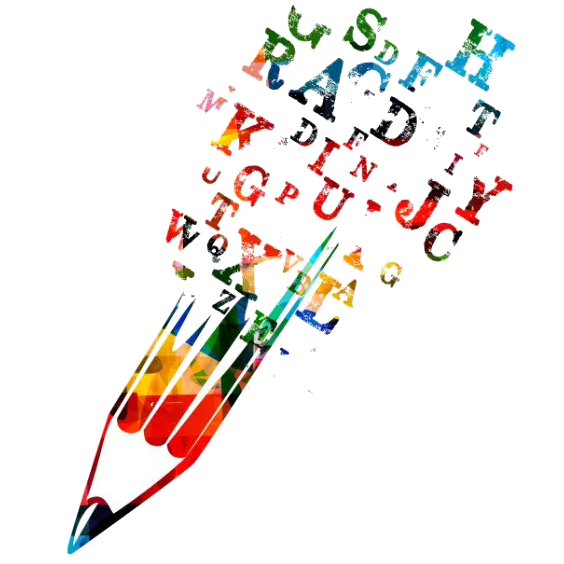10 Agents Looking for Commercial Fiction
Where to Query This Week (3.19.25) | Plus rethinking the traditional vs. self-publishing debate
Welcome to Sub Club’s Where to Query This Week!
Today,
is here to tell us we’ve been asking the wrong question. But don’t worry, he’s saying it nicely.In today’s guest essay, the USA Today bestselling author and creator of the Substack
, argues that most writers don’t actually choose between traditional publishing and self-publishing. Instead, they choose between publishing or not. Ahead, Russell advocates for authors to take control of their careers by building their own audience and making their own publishing decisions.Let’s get into it.
I Didn’t Choose to Self-Publish. I Chose to Publish.
In my long and (relatively) storied career, I’ve written over 40 novels, 16 non-fiction books, and a bajillion articles. I’ve signed over 50 publishing contracts, written for a ton of magazines, and edited several anthologies.
I’ve also worked with hundreds, maybe thousands, of writers. The newer among them often ask me some variation of “Why did you choose to self-publish so much of your work?” To which I reply with some variation of “I didn’t choose to self-publish. I chose to publish.” That nuance is a subtle but really important distinction, because it fundamentally changes how most authors should think about their career.
In order to have a choice in how you publish, one needs to be given the option to publish with a publisher or self-publish. And most writers, especially ones starting out, don’t have the option…because nobody ever offers them a publishing contract.
For the vast majority of authors, their choice is really between publishing at all or keeping their books on a shelf, not between traditional publishing and self-publishing.
The odds are ridiculously stacked against you getting any publishing contract, let alone one that plucks you from obscurity and gives you a career.
Every year, publishers receive hundreds, thousands, maybe tens of thousands of potential projects, and only accept a fraction of a fraction of a percent of them. They would certainly receive exponentially more if they allowed unsolicited submissions from anyone. But even as it stands right now, if there are 2,500 agents in the USA, each with 10 clients who finish a book every year, that would be 25,000 submissions for not many slots.
How many is not many? Well, Simon and Shuster publishes roughly 2,000 books a year, out of four million total books that are published a year. Combined with the other Big Five publishers—HarperCollins (10,000), Hachette (2,100), Macmillan Publishers (250), and Penguin Random House (15,000)—they publish around 30,000 total books every year.
On top of that, there are lots of amazing small presses, independent publishers, university presses, and other great outlets publishing every year. But when most authors dream about being published, they mean “by a Big Five publisher”, even if they don’t say it.
Yes, you might get a deal, and it might be significant, and it might be a breakthrough hit, and it might change your life. But those are a lot of mights, and even publishers are frightening bad at predicting which book with break out and blow up.
Meanwhile, you can always choose yourself.
Sub Club has 32,000 subscribers…which means the number of people who received this email is bigger than the number of Big Five titles that are published every year.
Those titles include works by established authors and celebrities, leaving vanishingly few chances for you and your book. I again want to stress that there are lots of opportunities at small presses that would love your book in ways a Big Five publisher won’t. But they also provide very small, if any, advances, at least until you prove you can sell. If you dream of quitting your job and retiring to stare at a lake all day with your typewriter, those kinds of advances seldom happen with small presses.
By some accounts, traditional publishers of all types account for 500,000 to 1,000,000 titles per year, or only 25% of the four million books that are released overall. Those are not great odds. Plus, even if you are lucky enough to get one of those deals, it will probably go badly, or at least underperform your expectations.
I was very lucky in my early career to be offered publishing contracts for a couple of my books through small presses, and I very quickly watched them bastardize the releases and luff off any responsibility. My self-publishing career started because I had to buy the rights back to my work and release them myself.
That was a choice, but the choice wasn’t really between traditional publishing and self-publishing. It was between incompetence and competence. I took those books back because I thought, "if somebody is going to mess up my books, it might as well be me.”
Frankly, even if you get a publishing deal, you might find that your publisher cancels your contract before the end of it, your agent might drop you, or your hot series could fizzle, meaning you won’t have another chance at a contract, at least not in your chosen genre.
If that happens to you, then you also won’t have a choice or, more accurately, you will have a different choice. It will be the choice almost all of us come to at one point in our careers.
Brandon Sanderson has a choice. Marissa Meyer has a choice. N.K. Jemison has a choice. They have the choice because publishers actively want to work with them because they actively sell a lot of books. They can negotiate, be picky, and choose to do things any way they choose. Because in order to have a choice you have to actually have a choice.
When it comes to publishing, I choose to trust myself every time. That doesn’t mean I don’t work with publishers. I mean, I’m literally publishing this article with a publisher, and I’m a publisher myself, so of course I believe in them.
The problem, for me at least, is that I’m not super great at explaining the thing I want to do with a book before it’s written. My books tend to be niche, complex, and layered with like ten levels of allegory, which make me sound like a crazy person when I pitch them.
Once I put out a couple series myself, it was easier for me to say “See, like that.'“ I’m also very bad at knowing what will sell, or how to sell a thing, until the rubber meets the road. Now, after doing this for 15 years, I know the kinds of books I like to write, the kinds of covers that work for me, and the kinds of things my audience resonates with enough to buy.
I also know how to work with and talk to publishers in their language and explain myself in a way that makes me an asset instead of a question mark. I can give them the demographics of my audience and say, “If you want to attract these people, then I can help do that thing,” and frankly, if you don’t, then you shouldn’t work with me. I know the ceiling and the floor of my work, and frankly most of it isn’t right for publishers.
When I write for publishers, I do things a lot differently than when I write for myself because I know publishers need to attract enough readers to make our collaboration worthwhile. I need to deliver 10x value, and my weird portal fantasy treatises on late-stage capitalism just don’t move the needle with publishers because they won’t reach a large enough audience.
It’s usually a bad bet for them. They work for me, though, because my needs are a lot different. Even then, I only release one of those when I can afford to barely break even on them.
I also have a lot of value to a publisher beyond even my audience. I can write quickly without oversight and deliver clean articles and stories that publishers can use without much editing or direction. I can proactively have ideas that help and execute on them without waiting for feedback.
All of those skills came from making the choice to publish myself, to learn publishing, and to love every aspect of publishing, even the parts I hate.
You always have that choice. You always have the choice to choose yourself. You always have the choice to pick your book off the shelf and publish it. You always have the choice to go your own way and do your own thing.
Eventually, if you make that choice, and you build an audience, people will come around, and even if they don’t, it won’t matter, because you don’t need them anyway.
Russell Nohelty is a USA Today bestselling author of fantasy and non-fiction. You can find his work on authorship at theauthorstack.com and his fiction at wannabepress.com.
Writer
got her best bylines by placing essays in popular columns. And now she is hosting a workshop with Write or Die, so you can too! Land Big Bylines by Writing for Columns will be held on Saturday, March 29, and will provide you with a strategy for pitching and selling columns to top publications, such as The New York Times, Cosmopolitan, and many others. This 3 hour workshop will be recorded if you can’t attend live!»» Register here ««
10 Agents Looking for Commercial Fiction
Commercial fiction refers to books that are written with broad appeal and marketability in mind. These books are often plot-driven, engaging, and accessible, designed to entertain and appeal to a wide audience. They follow conventional story structures with strong hooks, compelling characters, and satisfying resolutions!
If you’re currently querying and want a curated list specially made for your manuscript, be sure to check out my Personal Agent List service! I’m currently open for the month of March.
»» Get your own agent list here ««
This part of the column is for paid subscribers only. Paid subscriptions are the only way we fund this newsletter. We are 100% human-made and paid. So if you have the means, please consider signing up for more content like today’s column.









